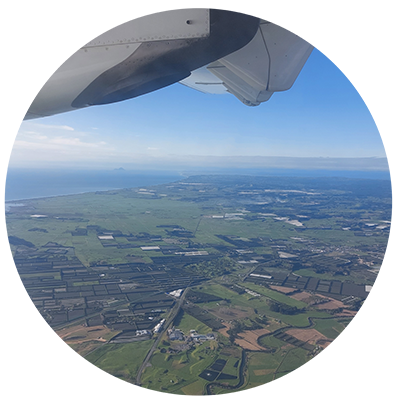- Country or region
- New Zealand
- Trade topics
- Negotiations and agreements
Public procurement is the process by which public authorities purchase work, goods and services from companies. New Zealand’s spending on government procurement contracts is estimated at NZD 51.5 billion each year, amounting to approximately 20% of GDP*.
Benefits of the EU-New Zealand Free Trade Agreement
The EU-New Zealand Free Trade Agreement (‘FTA’) will make it easier for EU businesses to bid for government contracts in New Zealand through the opening of new market access opportunities and commitments to make the tendering process more transparent.
New Zealand has opened up its procurement market beyond market access commitments already taken under the World Trade Organisation Agreement on Government Procurement (GPA) and other free trade agreements. New commitments cover:
- One Central Government Agency (the Ministry of Housing and Urban Development);
- Fifty-three Crown Entities and Crown Entity Companies, including Callaghan Innovation, New Zealand Infrastructure Commission, the Pharmaceutical Management Agency, and New Zealand Growth Capital Partners Ltd; and
- Ten Public Finance Act Schedule 4A Companies, including City Rail Link Ltd, Crown Infrastructure Partners Ltd, and New Zealand Green Investment Finance Ltd.
Thanks to the FTA, EU companies will be able to tender, on an equal footing with local suppliers and service providers, for contracts with all public authorities whose procurement is regulated by New Zealand’s Government Procurement Rules.
Procurement by almost all of New Zealand’s city, district, and regional councils will also be covered, in respect of procurement related to transport projects funded in whole or in part by the New Zealand Transport Agency. This includes procurement of Auckland Transport, provider of transport services and infrastructure in New Zealand’s largest city.
Procuring entities of New Zealand for which commitments have been made can be found in Annex 14 of the EU-New Zealand FTA.
New Zealand public procurement is regulated under the Government Procurement Rules.
The Rules are mandatory for some entites and expected or encouraged for others. Compliance with the Rules is mandatory if the procurement contract is worth more than NZD 100,000, or NZD 9 million for new construction works, and is being procured by a government department, New Zealand Police, the New Zealand Defence Force, or most Crown entities.
It is also mandatory for all entities listed in the FTA, in accordance with commitments therein

New Zealand’s process for procuring
Openly advertised procurement opportunities in New Zealand can be found on the comprehensive platform New Zealand Government Electronic Tenders Service (GETS). Approximately 20% of the total spend on procurement in the financial year ended March 2023 was awarded via GETS.
All procuring entites covered by the Rules and international agreements, including the EU-New Zealand FTA, must use GETS for procurement above the monetary threshold, unless an exemption applies. If an exemption applies, the agency must use either a closed competitive process (with a limited number of known suppliers) or a direct source process (with a known supplier) instead.
Registration on GETS is required if you wish to respond to tenders.
New Zealand also has a platform where EU firms, can register their interest in providing software as a service (SaaS), consultancy and professional services, managed services and enterprise software to the New Zealand Government. This platform is known as Marketplace.
Types of contracts
There are three types of collaborative or centralised contracts used for public procurement in New Zealand:
- All-of-Government Contracts - agreements with approved suppliers for selected commonly purchased goods or services across the Government.
- Syndicated Contracts - involves a group of entities aggregating their respective needs and procuring collectively.
- Common Capability Contracts (CCs) - agreements with approved suppliers for selected common goods, services or works purchased across government.
Contract templates designed by New Zealand Government Procurement are available here.
Appealing a Tender Process
Aggrieved suppliers can complain to the procuring entity if they believe that they have been treated unfairly. If they are still not satisfied after consultations with
the procuring entity, they have several options for independent redress:
- An independent review or investigation.
- A mediation or alternative dispute resolution.
- An investigation by the Auditor-General.
- An investigation by the Ombudsman, the Public Services Commission, or the Commerce Commission.
- Court review.
Refer to the EU SME Guide for more information on the benefits of the EU-New Zealand FTA and guidance on doing business in New Zealand.


